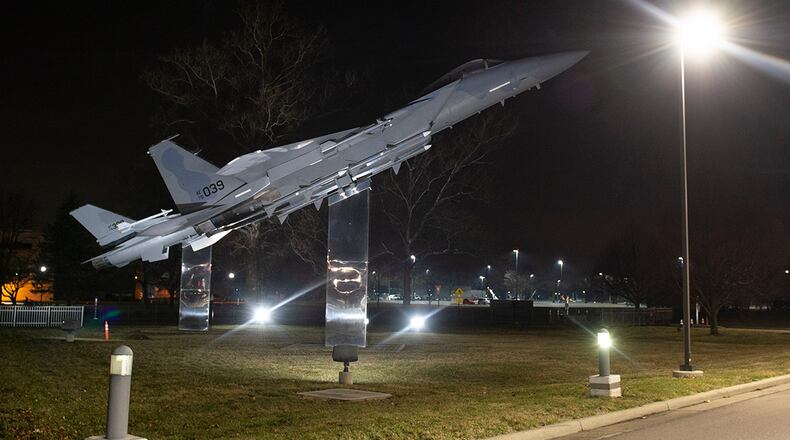The suit filed last month sought — and now has been granted — a preliminary injunction against the Air Force from taking “punitive action” against Poffenbarger.
U.S. District Judge Thomas Rose granted what he called a “relatively limited preliminary injunction” that “essentially preserves the status quo during the pendency of this matter to prevent defendants from imposing any further adverse action against Poffenbarger (only) for his refusal to comply with an order requiring him to receive a COVID-19 vaccine.”
“The court finds that, at this stage of the litigation and based on what has been presented, Poffenbarger has shown a strong likelihood of success on the merits of his claims,” Rose wrote in the filing, which was issued Monday.
According to background presented in the filing, Poffenbarger enlisted in the Air Force in 2005, serving two overseas deployments. He was commissioned a second lieutenant in the Air Force Reserve in the fall of 2021.
The Air Force does not permit unvaccinated members to attend an “intelligence technical school” where Rose said Poffenbarger must be trained.
Last September, Air Force Secretary Frank Kendall, a defendant in the lawsuit, mandated the COVID-19 vaccine for Air Force members.
One argument by Poffenbarger is that Kendall, while allowing medical and administrative exemptions to the vaccine mandate, “gave directives to commanders, through official and/or unofficial channels, that religious accommodations were not to be granted to the COVID-19 vaccination policy.”
Rose cites Air Force data from early February, saying the service had granted 1,513 temporary medical exemptions and 2,314 total administrative exemptions from the mandate — but nine religious exemptions. The Air Force announced those exemptions after Poffenbarger filed his lawsuit in Cincinnati in January.
Rose wrote that the Air Force denied Poffenbarger’s request for an exemption, saying the “denial acknowledged the sincerity of his religious beliefs, but stated that mission readiness required Poffenbarger to receive COVID-19 vaccination.”
In a similar lawsuit also filed in Cincinnati’s federal court in mid-February, Poffenbarger’s attorney, Kentucky lawyer Chris Wiest, also represents at least 18 plaintiffs, of whom at least 10 officers and one enlisted Airman are said to serve, or recently have served, at Wright-Patterson.
An Air Force spokeswoman recently told the Dayton Daily News that the service does not comment on litigation. But in an earlier filing with the court, the Air Force said vaccinations have “promoted readiness by reducing the risk of infections, hospitalizations, and deaths of service members.”
“An (COVID) outbreak at the secured facility at Wright-Patterson Air Force Base would likewise affect readiness,” the Air Force said in a Jan. 31 filing in Poffenbarger’s suit. “The intelligence work performed by plaintiff’s unit supports the work of aircrews at the base, including providing vital intelligence on ‘current threat assessments, regional geopolitical trends, and a myriad of other classified topics based on the specific itinerary of the aircrew,’ as well as ‘receiv[ing] debriefs from returning aircrews to ensure the Intelligence section is providing the most up to date information and reports.’”
About the Author

